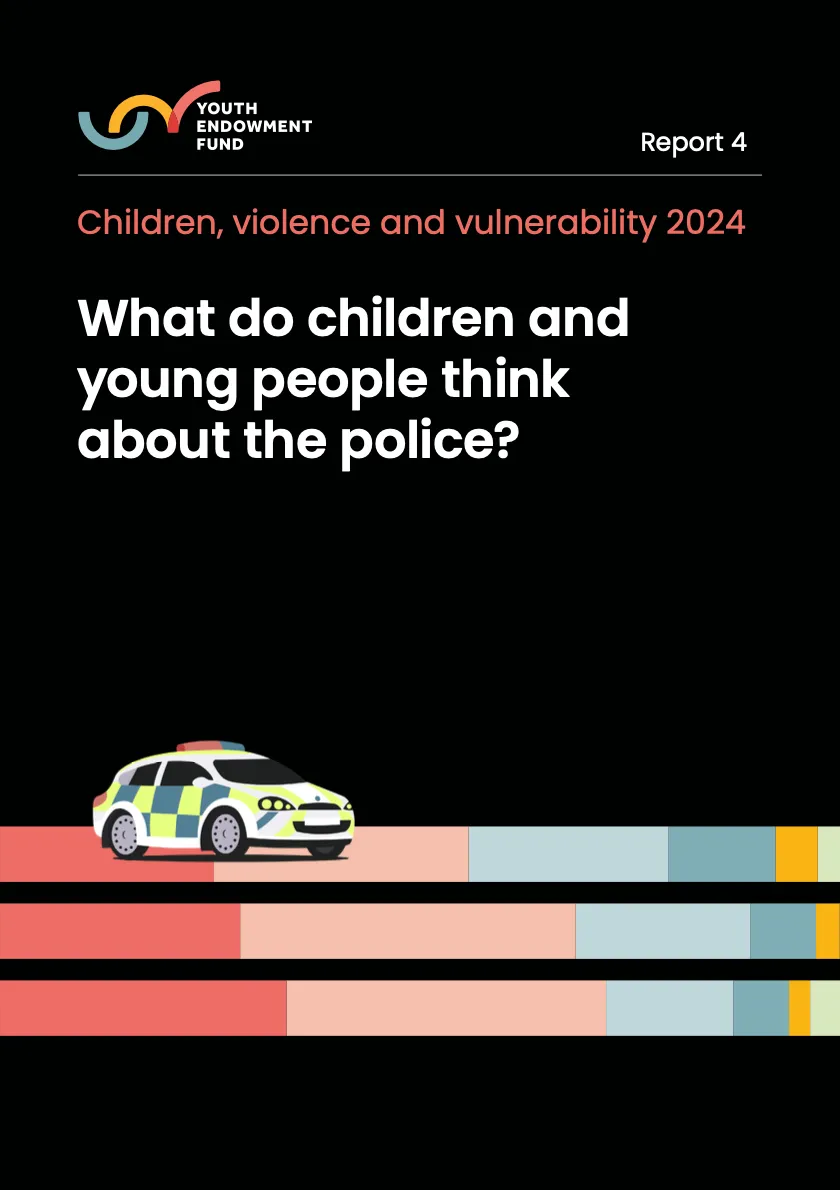
Age plays a significant role in shaping perceptions. Thirteen-year-olds consistently express the most positive views, while 16-17-year-olds are more critical of police conduct. Interestingly, Black teenagers (63%) are the most likely to agree that the police do a good job locally, compared to 54% of White children, 52% of Asian children and 50% of mixed ethnicity children.
However, Black (39%) and mixed ethnicity (36%) children are far less likely to believe the police treat everyone fairly than White children (47%). When it comes to the use of force, Asian (47%), Black (42%) and mixed ethnicity (39%) children are also less likely to agree that police use force only when necessary when compared to White children (52%).
"I think I have mixed feelings about and towards the police. I think there are a lot of police that have good intentions, but when we’re looking at a system, I think it creates a lot of fear when we don’t believe a system is made for us."
Taylia, Youth Endowment Fund Youth Advisory Board member
Children with direct experiences of violence tend to have more positive views of the police. For instance, 62% of children who’ve been victims of serious violence think their local police do a good job, compared to 54% of children who haven’t been a victim.
Direct experiences with the police also affect perceptions, but the effect differs depending on racial background. White teenagers who’ve had contact with the police are more likely to say the police do a good job than those with no direct experience. But this is not the case for teenagers from Black, Asian and mixed ethnic backgrounds.
Children are mostly supportive of stop and search but don’t all agree it’s used fairly.
Most teenagers are supportive of the police’s power to stop and search, though not all believe it’s applied fairly. Overall, 68% of 13-17-year-olds support stop and search, and 72% believe it helps prevent knife crime. However, only 56% think that stop and search is used fairly. Younger teenagers (aged 13-15) are generally more supportive of stop and search than older teenagers (aged 16-17). Racial differences also emerge, with White children more likely to view stop and search as both effective and fair than their Black, Asian and mixed ethnicity peers.
"I don’t think I would say stop and search is necessarily bad. I don’t think most people would agree that stop and search is bad. But I think it’s about it being proportional. What are we trying to achieve? And are we proportionally using it fairly and correctly in certain areas? There’s naturally a power imbalance between the police and young people. Are we doing it out of power? Are we doing it to incite fear? What are we actually trying to achieve when we’re carrying out stop and searches? So, I wouldn’t say they are bad, I think we just need to be a bit mindful about how we’re using stop and searches."
Taylia, Youth Endowment Fund Youth Advisory Board member
Children who’ve been stopped and searched have had mixed experiences.
The experiences of those who’ve been stopped and searched also vary significantly by ethnicity. White teenagers who’ve been stopped and searched are more likely to have had a positive experience, with 74% agreeing that the police were polite and 70% feeling they were treated with respect. In comparison, 56% of Asian, Black and mixed ethnicity teenagers who’ve been stopped and searched agree that the police were polite, and 51% agree that they were treated with respect. Similarly, 73% of White teenagers agree that the police explained why they were being stopped, compared to 55% of Asian, Black and mixed ethnicity children.